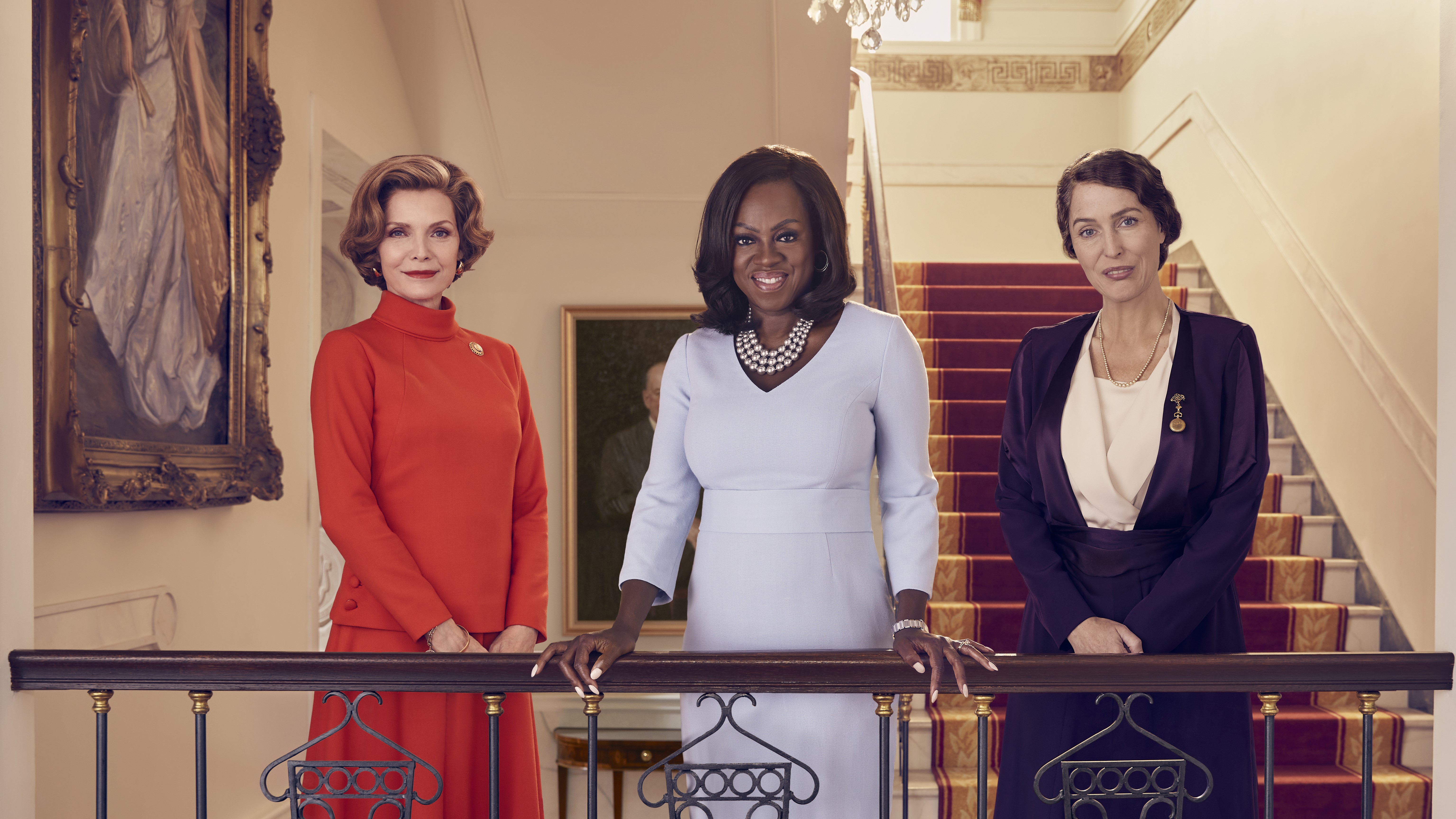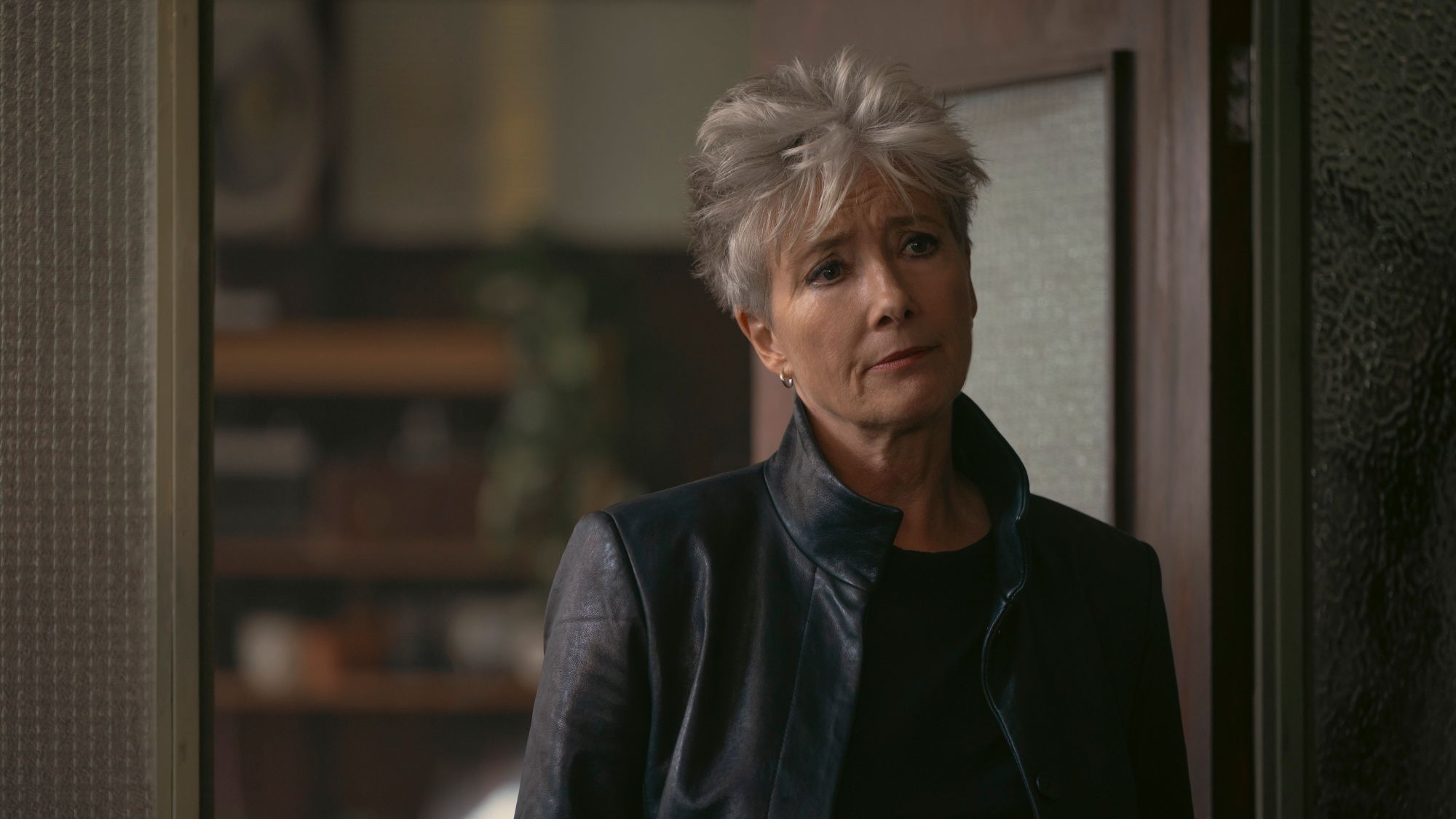What to Watch Verdict
An entertaining but slight ending to this story that never reached the brilliance of the performances (particularly Michelle Pfeiffer).
Pros
- +
Too slight in places, but the mother/daughter thread through all three timelines hits
- +
Michelle Pfeiffer's raw vulnerability in the therapy sessions
- +
It encourages further reading
- +
Good use of archival material
Cons
- -
Michelle Obama's story is still ongoing, so lacks closure of the other two
- -
Unsubtle and on-the-nose storytelling
NOTE: This post contains spoilers for The First Lady season 1 finale, "Victory Dance." Read our previous review for The First Lady season 1 episode 9 right here.
Since Martha Washington became the inaugural first lady in 1789, there have been 53 women who have held the title. "The role of first lady has never officially been defined or codified,” commented Elanor Roosevelt (Gillian Anderson) halfway through The First Lady’s 10-episode run. Yes, there are certain expectations about the decor and public-facing duties, but Eleanor, Betty Ford (Michelle Pfeiffer) and Michelle Obama (Viola Davis) painted outside those lines.
The Showtime anthology season finale charts what happens after their time in the White House is over but never hits those truly satisfactory notes.
Eleanor spent the longest time of any woman as first lady thanks to her husband’s unprecedented four terms as president. However, her role is abruptly cut short in "Victory Dance" when Franklin (Kiefer Sutherland) dies only a few weeks after returning home from the Yalta Conference. Archival footage notes Franklin’s ill health and later shows the vast crowds that gather for his funeral procession. The war in Europe is only a few weeks from over and Eleanor’s influence is felt during the last conversations her husband had with Stalin — even though she was back home in the US.
The last time Eleanor sees her husband alive, she offers to go to Europe with him. Daughter Anna (Cailee Spaeny) updates her mother on his precarious health and there is a finality to this prognosis. Anna’s role as her father’s secretary involves keeping his reignited affair with Lucy (Maria Dizzia) secret. It's a terrible position to put Anna in, one that Eleanor acknowledges after Franklin passes away.
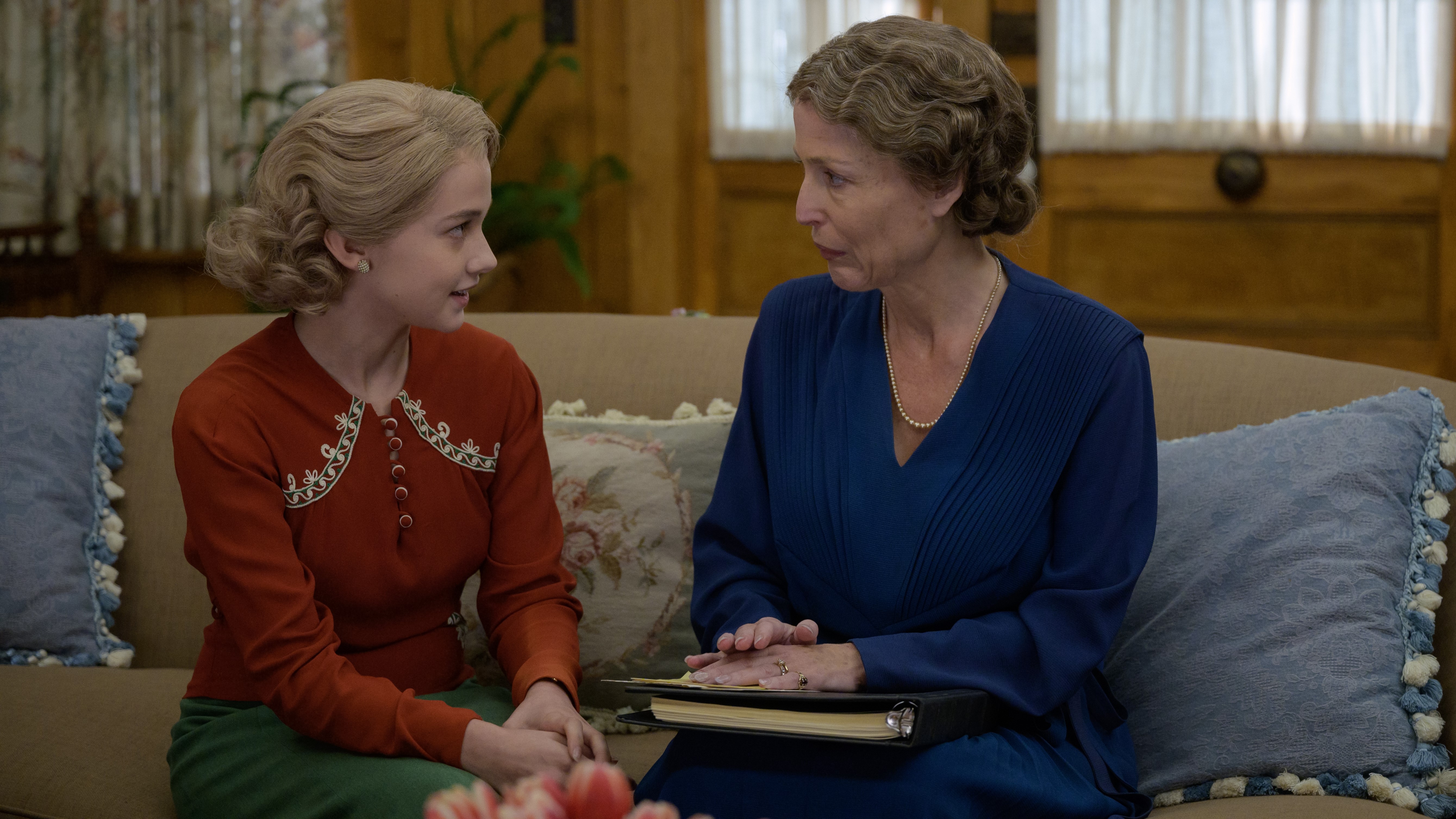
Eleanor’s desire to work and inability to be there for those who care deeply about her is a recurring theme. "It was you who made him a father," Eleanor says in a rare moment of personal clarity to her daughter after Franklin’s death. Later, it shifts back to old patterns and Eleanor can’t help but keep the grieving Anna at arm’s length. When she is confronted about her lack of mothering skills, she responds, "I’m afraid I’m rather clumsy at love."
This scene has barely peeled back the layers when the pair are interrupted by Eleanor’s personal secretary Tommy (Clea DuVall), which is part of the issue regarding The First Lady’s fragmented format. If this were just an Eleanor Roosevelt biopic, more time would be dedicated to each relationship — including her close bond with Tommy. Instead, we're left dissatisfied with this brief glimpse into Eleanor’s fractured family dynamics. It should be noted, the performances continue to outshine the writing.
Professional and personal matters overlap, so Anna stops by with the finished Charter of the United Nations, which Eleanor worked hard to make a reality. Despite all her efforts, she is still surprised when Harry Truman (Robert Sean Leonard) offers her the chance to be the US delegate for the United Nations General Assembly. "A most unusual appointment," she comments, yet there is nothing unusual about it to everyone else.
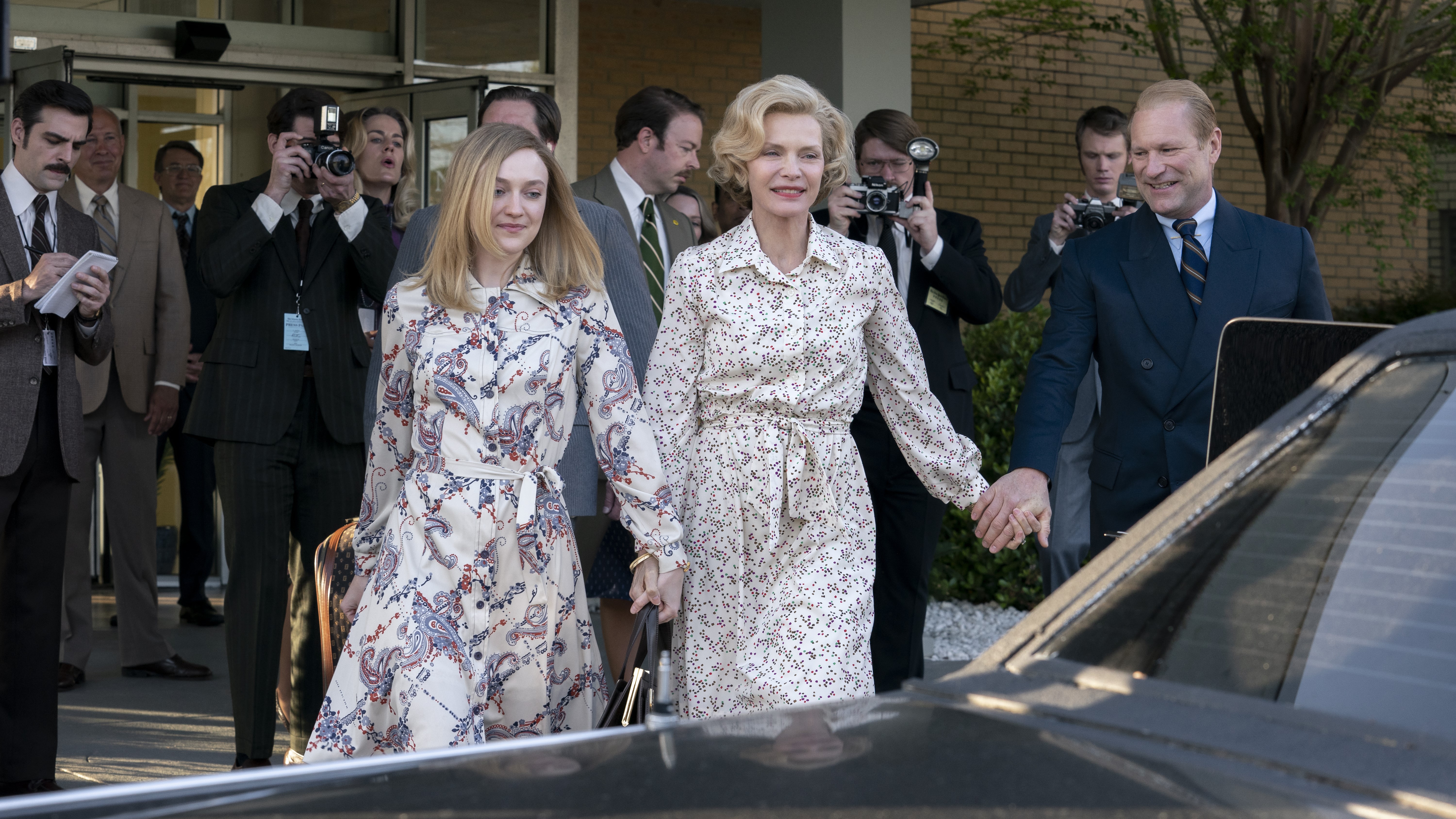
While Eleanor stays closely tied to politics even after her husband’s death, Betty Ford branches out with a project that uses her personal experience as a foundation. Addiction is something she denied during the painful intervention scenes in the penultimate episode, but her time in rehab has been eye-opening. Her roommates offer support and one woman reveals she was ready to quit until she discovered that the first lady would join them. A group therapy session offers Pfeiffer the stage to showcase the raw vulnerability that has made this the standout narrative in the series.
The development of what will become the Betty Ford Center (a name Betty is, at first, uncomfortable giving to the rehab center) is born out of the reality there is a severe lack of places for addicts to seek treatment. Again, as with Eleanor’s UN appointment, it does feel like the logical step that uses Betty’s talents and personal connection to good use.
Now that she is no longer under the fog of pills and booze, there is a relaxed atmosphere at home with her husband and daughter. Only two years in the White House, but her legacy continues to this day.
Betty’s speech when she received the Presidential Medal of Freedom in 1991 (the remarks in the show are a fabrication) uses the recurring dance metaphor in both flashbacks and present-day Betty scenes. This on-the-nose symbolism is a weaker element of The First Lady, which is partially hidden by the terrific performances.
On a personal note, I went into this series knowing little about Betty Ford beyond the rehab center and now I am reading the biography by Lisa McCubbin. The slightness of the series has encouraged further reading.
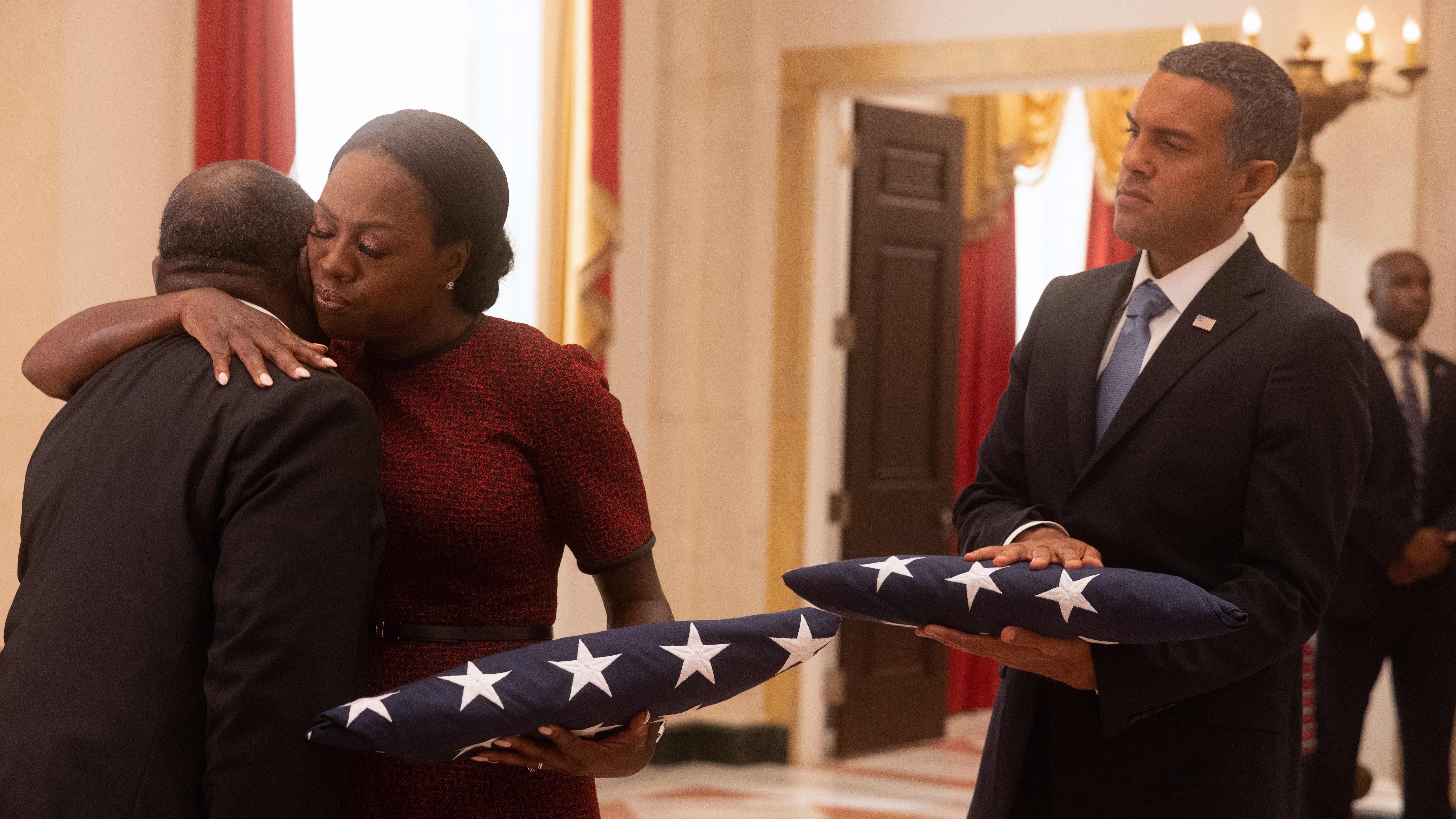
In contrast, most viewers know Michelle Obama, meaning this portrayal was always going to be the most challenging task. We've said it a few times, but it's too soon to dramatize the 2016 election followed by the inauguration of President Trump. Yes, the visible rage behind closed doors is s different angle, but the thought of Malia Obama (Lexi Underwood) tweeting about how much she hates Trump is a stretch. It also doesn’t help that whereas Eleanor and Betty’s stories have concluded, Michelle’s is ongoing.
Seeing Michelle visiting schools and appearing at book signings — the recreation of the Becoming cover is uncanny — doesn’t feel like much of a coda. Her former Princeton roommate uses a book signing to apologize for her mother’s racism, leading to her changing rooms several decades earlier. It's another case of unsubtle storytelling, thanks to the juxtaposition with a young Black tween excited by meeting Michelle.
A callback to the letter Michelle received from Betty Ford is a full-circle moment meant to capture the title that links them all. It can’t help but feel overwrought and clunky.
While The First Lady has been entertaining, it never reached the heights of the women it is portraying or the talented cast in each of these roles.
All episodes of The First Lady can be watched on the Showtime app in the US. The series can be watched on Paramount Plus in the UK starting June 22.
Emma Fraser spends most of her time writing about TV, fashion, and costume design; Dana Scully is the reason she loves a pantsuit. Words can also be found at Vulture, Elle, Primetimer, Collider, Little White Lies, Observer, and Girls on Tops. Emma has a Master’s in Film and Television, started a (defunct) blog that mainly focused on Mad Men in 2010, and has been getting paid to write about TV since 2015. It goes back way further as she got her big start making observations in her diary about My So-Called Life’s Angela Chase (and her style) at 14.
